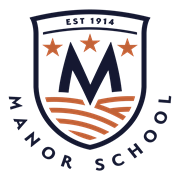In line with the work, world and wellness curriculum, the purpose of the business and computing department is to equip students with the computing, enterprise and business-related skills needed for the workplace, to prepare students for jobs that don’t even exist yet and to develop positive digital citizens through our digital literacy opportunities. We pride ourselves on offering opportunities for both traditional and technical study of business and computing related courses and content.
Key Stage 3 Curriculum Information
The KS3 Computing Curriculum incorporates both IT and computer science concepts to prepare students for further optional study in KS4/5. Students focus on the development of 4 main skill areas across the 3 years and these are investigated through a variety of topic areas:
Algorithm topics give students an understanding of how programs are created through a step-by-step process, helping them to be able to think and work logically and systematically.
Data representation topics show students how all information and images seen are translated into binary. Students develop their knowledge of binary, hexadecimal, and logic gates. Cyber Security is covered within this topic area, exploring cryptography and ciphers.
Computer systems topics allow students to explore the physical hardware and understand how the components of computing systems work together. Students will also be given the opportunity to use and manipulate Big Data within the data science module.
Programming concepts gives students the opportunity to move from block-based programming to a text-based language (Python) and begin to develop their HTML skills.
Throughout all topics students work on their digital literacy, enhancing their use of software and developing an understanding of features available to streamline their work.
Key Stage 4 Curriculum Information
GCSE Business Studies (AQA)
This course is suitable for students with an interest in the business world. Students will learn about businesses in the real world, influences on business, marketing, finance, people and operations and production. This broad range of study will provide an excellent foundation for further study at post 16 and will build students’ skills of analysis and evaluation, whilst investigating real life businesses.
GCSE Computer Science (OCR)
This course is suitable for students who want to learn how computers function, how to write programs and how data are represented and handled by applications. Students will learn the fundamentals of algorithms, data representation, programming, computer systems, computer networks, cyber security and software development. Students will also have the opportunity to carry out a programming project using the Python coding language. This course can lead onto A-level Computer Science.
BTEC Level 1/2 Technical Award in Digital Information Technologies
This course is for learners who want to acquire technical knowledge and technical skills through vocational contexts by studying topics including: data management, data interpretation, data presentation and data protection. The course gives learners the opportunity to develop sector-specific knowledge and skills in a practical learning environment. Study of the qualification as part of Key Stage 4 learning will help learners to make more informed choices for further learning, either generally or in this sector including BTEC Level 3.
Key Stage 5 Curriculum Information
Business Studies
At post 16, students may choose either a BTEC Level 3 or and AQA A-Level pathway, tailored to student needs and this will prepare them with the skills and qualities required for future study or work. Students will explore topics such as business finance, marketing concepts, influences on business and human resources.
A Level Economics (AQA)
This course allows students to understand how the whole country operates and how the Government try to influence it. The course will include specific markets as well as the impact of other global economies on the functioning of UK economy. Economics will allow students to progress into the worlds of banking and finance as well as a wide variety of university degrees.
Information Technologies (BTEC)
This course is designed for is designed for learners who are interested in an introduction to the study of creating IT systems to manage and share information, hardware and software that form an IT system, managing and processing data to support business and using IT to communicate and share information, social media marketing, website development alongside other fields of study, with a view to progressing to a wide range of higher education courses, not necessarily in IT.
Enrichment
- National computing challenge(s)
- E-Sports
- Code Club
- STEM
- Online Safety activities
- Digital literacy skills (IDEA award)
Curriculum Leader
Daniel Skeggs


